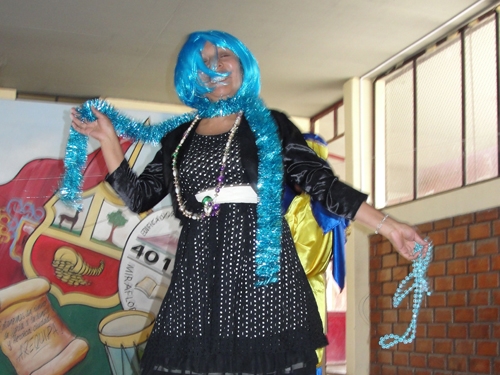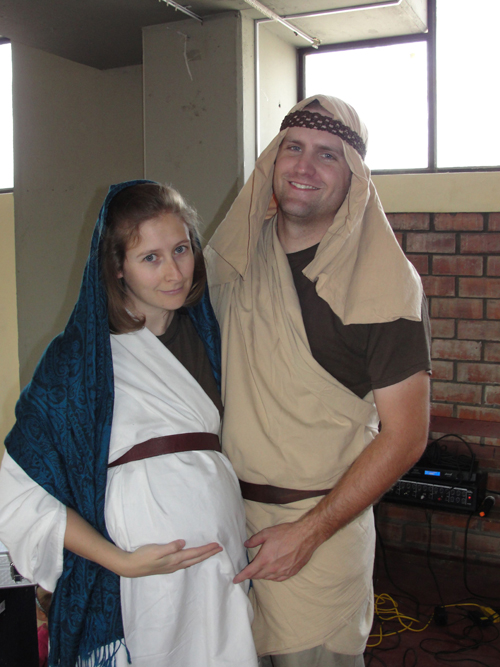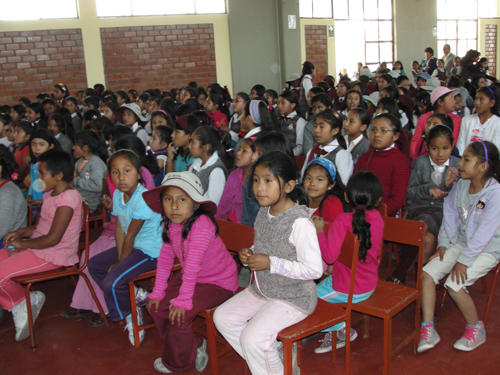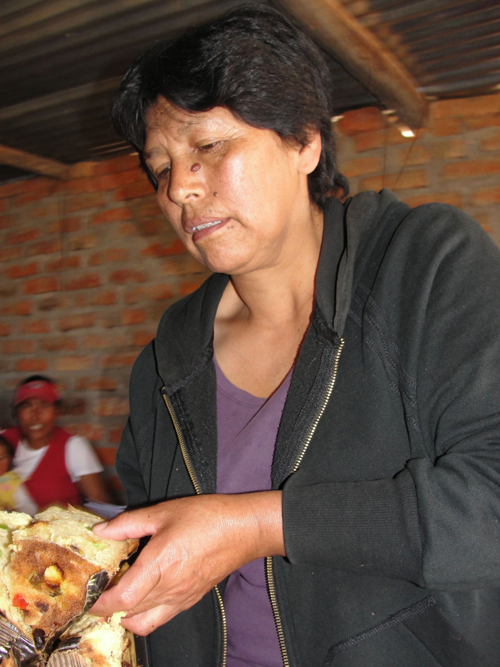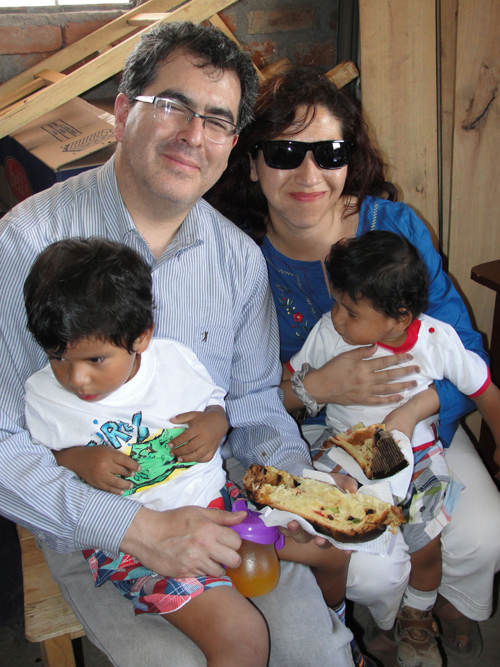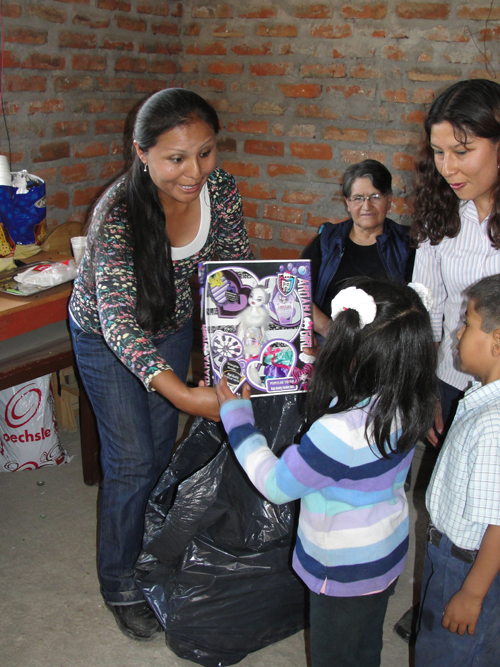This month, I turned 31 years old. It was my 5th birthday to celebrate in Arequipa. I decided this year that I wanted a “night out” with some girlfriends on my big day. I wanted to share a picture from that night, and tell you why each of these relationships are special to me during this time.
Nadia is my neighbor, and if you have kept up with our story here you know that Nadia was baptized last year. She is such a dear friend to me. We both share the same profession. She has volunteered with me in the library program at times, and I love having a Peruvian friend to talk to about cultural differences in the school system. Also, we started our friendship right at a time when I needed someone just like her. She came requesting English classes (I desperately needed those conversations in my native tongue). Our English class turned into a Bible study. Nadia was the first person with whom I shared the story of Jesus. I will never forget that. During furlough, I found a Willow Tree Angel holding a book. I bought it for Nadia and gave it to her for her birthday in November. I told her that she would always remember me when she saw that little figurine on her table. For my birthday, she gave me a little figurine that she bought in the market here. You can bet that wherever I am living in 50 years that little figurine will be in a place that I can see.
Sitting next to Nadia is Areli. What a beautiful personality that girl has! She is Etelvina's daughter. (Etelvina is a dear sister in the church who we absolutely love to pieces.) The thing I love about my relationship to Areli is that we are kindred spirits in laughter. If you know me, you know that I love to laugh. Sometimes, when crossing cultures, it is hard to feel like you understand jokes or are able to be funny around those from a culture different than yours. That is not the case with this amiga. I find such joy in hearing her laughter, and it is contagious. We don't need to sit together in a meeting where no noise is allowed. Ha! Areli and I have been studying the book of Mark together. She is such a good person, and she is earnestly seeking something deeper for her life. It is my prayer that she decides to follow Christ whole-heartedly in the near future. God has blessed me with a friend to laugh with, and I am so blessed by her friendship.
That gringa you might not recognize is named Katie Daggett. Katie and her husband, Jeremy, are part of the team moving to Arequipa in 2014. They decided to come to Arequipa and take 2 months of language classes to better prepare themselves for the field. What is really special about the two of them is that they are where Greg and I were 7 years ago. Jeremy is studying at Harding School of Theology in Memphis, and the two of them are about to work with the same Hispanic church where Greg and I worked during our time in Memphis. It has been such a blessing to get to know them better, to share dreams about the future work here in Arequipa, and to answer the many questions they have about moving here. For me, Katie symbolizes the things to come in Arequipa. I am excited that my family's remaining time will overlap some with her family, but I am even more excited to see what God will do through them and the rest of their team in the years to come. Pray for Team Arequipa 2.0. We are so excited about them joining the work here.
Next to Katie is Emilia. Oh how I love Emilia. She has been a Christian for many years, and she recently moved to Arequipa from Lima. Her joy and fervor for the Lord are contagious, and she has such a passion to work in children's ministry. Larissa and I know that Emilia was a God-send to our church in the realm of working with the children. It is wonderful to see a Peruvian that is mature in faith. She has blood family in the city, but she thrives on spending as much time with her brothers and sisters in Christ as she can. She knows a little bit of English, and we get such a kick out of her practicing and asking questions. She is so much fun to be around. My children love “Bible class with Emilia,” and I thank God for a Christian sister that is equipped to help teach them when the church is together.
You should recognize that other gringa. I told Larissa the other day that it will be so hard to know life without her family in our lives (as in the same city) when the day of our departure comes. We shared our time in Memphis with the Smiths to prepare for our mission work. We shared in the joy of having our first children in Memphis (there is only a 3 month difference between Ana and Shaye). We moved together to live for 6 months in Tyler and 6 months in Arequipa. We have not known this work without the Smiths. We love them dearly, and we have been through so much together in our time here. Larissa knows a part of me that no one else can understand. We have lived, grieved, rejoiced, waited, misunderstood, been confused, and celebrated as missionary wives in Arequipa, Peru. There just aren't too many people that I share that with. I love her dearly, and it will sadden me greatly when the day comes that we separate. But I am so grateful for her service to the kingdom in this city. I am grateful for how she strives to be a good wife and mother. And I am grateful for her friendship as a friend, but much more so as a sister in Christ.
It was a very special group of people that night. It is hard to imagine that I only have one more birthday left to celebrate in Arequipa. But God has certainly given me a reason to celebrate life here.


